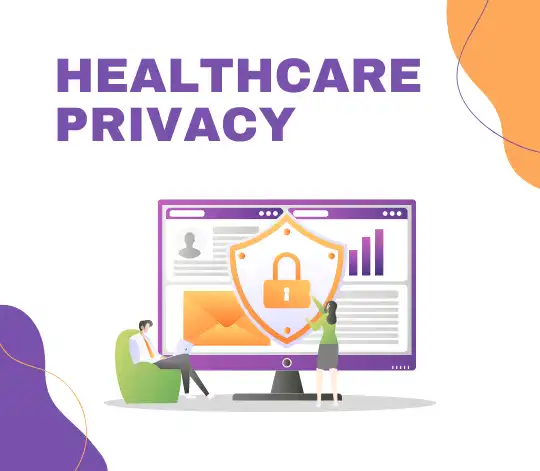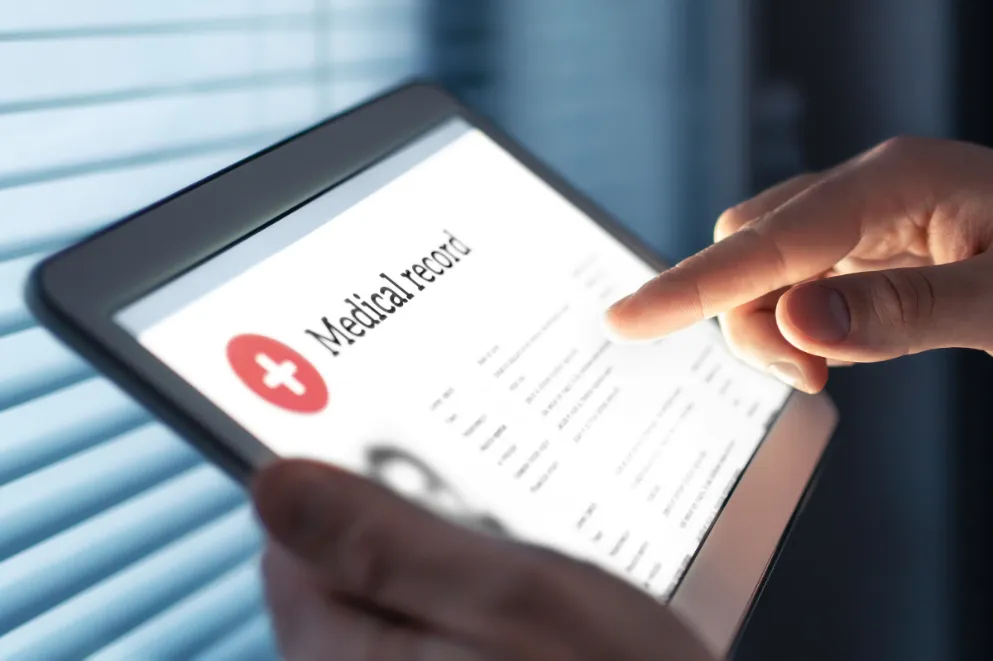Privacy in healthcare is one of your fundamental rights. The need to safeguard your privacy in the healthcare system is non-negotiable, and it is crucial to maintain your confidence and trust in the system. For example, to receive an accurate diagnosis and treatment when visiting a doctor, you may need to share very personal information. Knowing your personal data won't be shared with anyone else without your express approval is essential to making you feel safe when communicating with a healthcare professional. Read on to learn what privacy means in health care.
What is protected health information?
Protected health information is sensitive and personal information about your health, as well as information on the medical treatments you have received or, will receive. Protected health information includes a patient's:
- name
- address
- medical condition
- medical services
- social security number
- birthdate
What is privacy in healthcare?
The term "privacy in healthcare" refers to preserving the confidentiality of all the information you disclose to your healthcare provider during your encounter, whether in writing or verbally, including the medications you take and other personal information. In a nutshell, privacy in healthcare means keeping your protected health information private.
Do I have a legal right to health information privacy?
You have a legal right to this privacy, and some regulations specify how healthcare practitioners must handle and use your private health information. Additionally, you have a legal right to access your medical records and authorize them to be shared.
What are the rules and regulations of healthcare data privacy?
The primary US federal laws and regulations that protect confidentiality, privacy, and security in healthcare include:
- Health Insurance Portability and Accountability Act (HIPAA), Privacy Rule (2000): HIPAA is a federal law that sets national standards on health information privacy. However, HIPAA does not protect you in all cases.
- Health Information Technology for Economic and Clinical Health (HITECH) Act Breach Notification Rule (Health and Human Services): HIPAA privacy amendment. If a breach of unsecured protected health information is identified, the business associate must notify the covered entity.
- SAMHSA - Confidentiality of Substance Abuse Patients Records: focuses on record confidentiality for patients with substance use disorder.
- Clinical Laboratory Improvement Amendments (CLIA) (1998): privacy safeguards for laboratories that conduct tests on human specimens for medical purposes.
Furthermore, there is a proposed American Data Privacy Protection Act (ADPPA) which may bridge the gap that HIPAA does not cover.
What are my responsibilities regarding privacy?
You are responsible for keeping your health information safe. While you can share it with anyone you choose, only your healthcare professionals are covered by rules and regulations of privacy in healthcare.
Are there exemptions to privacy laws?
In the following circumstances, your healthcare professional may disclose your protected health information without your consent:
- when the data is necessary to provide medical care in a critical situation; for example, if you are unconscious and the healthcare team needs to know if you have any drug allergies
- where the knowledge will lessen or avert a significant risk to the public's health or safety, as in the case of a severe contagious sickness that requires public notification
- when it involves police enforcement or court order
Are privacy laws applicable to the deceased?
No, health information privacy laws only give rights to the living. Once the person is dead, they are no longer applicable.
Does RxLess protect my privacy?
Everyone talks about protecting your privacy, but not everyone actually does it or does it well. At RxLess, your privacy is our priority. We are just as committed to safeguarding your confidential information as we are to protecting your health. We know that the less your information is shared, the more you’re protected. That’s why no personal information is ever required to use our program. Search for the lowest price for your medications in your area, show your pharmacist the free prescription discount card or coupon, and get an immediate discount on your medication. It's easy, free, and secure!

















